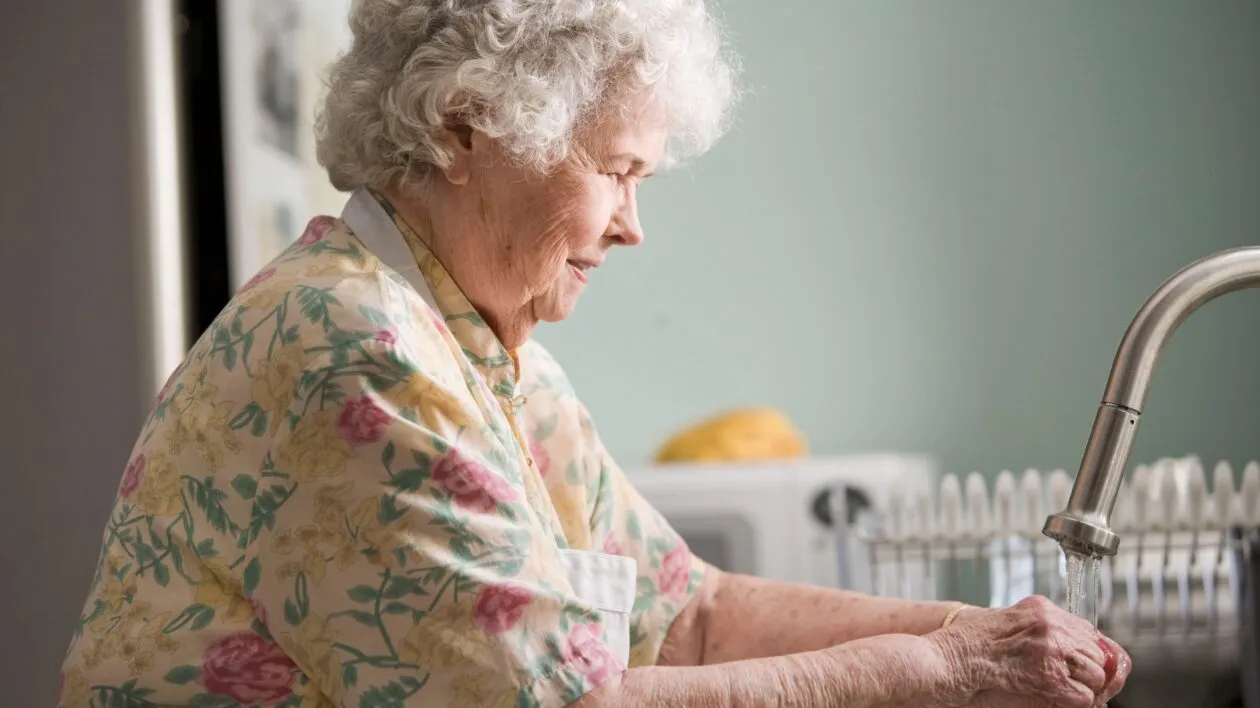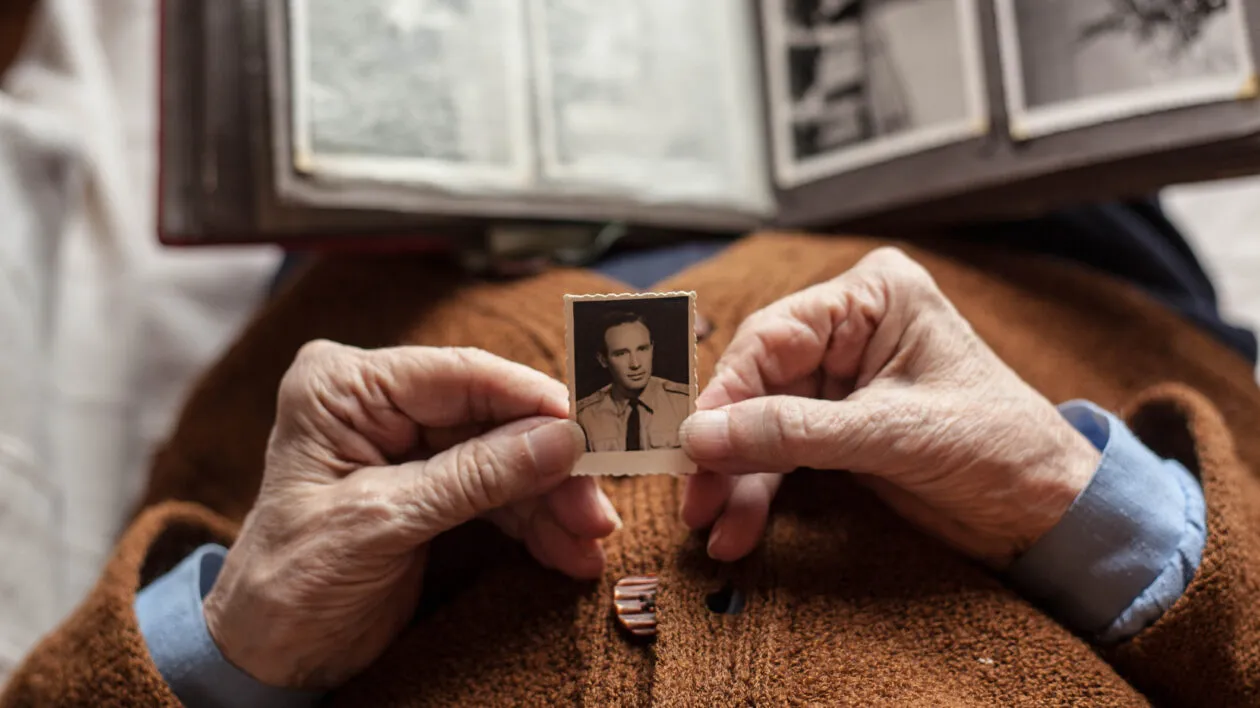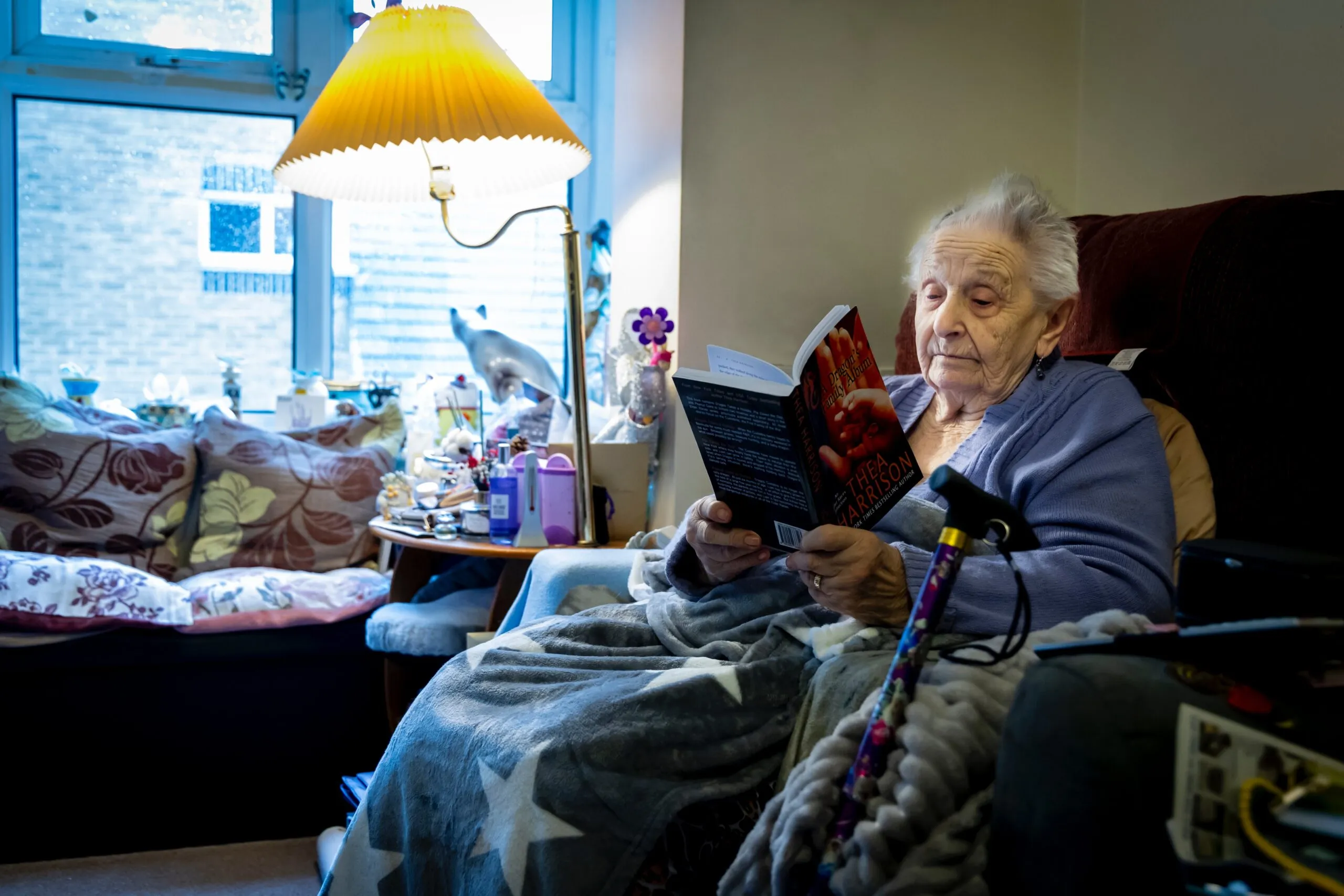Not sure if your elderly parent can live alone?
It’s a hard realization that your parents may need more help than you can give. Life can be hectic, making it challenging to always be available for our loved ones. Plus, you may not have the right skills to care for them in the best way they need at their age. Seniors often feel guilty, ashamed, or embarrassed to admit they need help with tasks that once seemed so easy. Some seniors might just stop doing important personal, household, financial, or medical functions rather than asking for assistance.

Cropped shot of a senior woman looking out the window at home
Through open communication, you can maintain an honest, supportive, and healthy environment for your loved one – at every stage of life. So, how can you tell if your elderly parent cannot live alone?
Here are the five key indicators that your loved one may need additional assistance.
5 signs your elderly parent can no longer live alone
RELATED: 5 Tips for Talking with Your Aging Parents about Senior Living
1. Mobility issue
As seniors age, their mobility may decline in several ways, including muscle weakness, joint problems, balance issues, and chronic health conditions. If you see your parent struggling with the following, they may no longer be able to live alone:
- They spend most of their time in bed.
- You notice it is difficult for them to get around their home or use stairs.
- There are unexplained bruises or cuts on their bodies.
- They appear physically exhausted by daily household routines.
- They express a fear of falling or have fallen while showering or bathing.
What does this mean? They may have a lack of energy or have medication that makes them dizzy and fatigued. Reduced mobility increases the risk of falls, which can result in serious injuries, hospitalization, chronic pain, and long-term care considerations. If your parent is falling, they might no longer be able to live alone.
2. Dwindling hygiene and self-care
Poor hygiene can be a significant indicator that a senior citizen may no longer be able to live alone safely and independently. As people age, they may face physical, cognitive, and emotional changes that can affect their ability to maintain self-care.
- Are they still bathing, grooming, and dressing themselves?
- Can they still do their laundry and cook themselves food?
- Is your loved one still maintaining personal care appointments?
- Has your parent abruptly stopped purchasing their favorite health and beauty products?
- Has anyone expressed concern about your elderly parent’s appearance?
If your parent is having difficulty keeping up with personal hygiene, it may be a sign they can no longer live alone. They may be experiencing cognitive decline, sensory challenges, or a decline in motor skills that makes it hard for them to complete simple tasks.

3. House and yard are messy and/or not maintained.
A messy or cluttered living environment can be a sign that your elderly parent is struggling to live alone safely and independently.
- Do they let mail pile up in the mailbox for days at a time?
- Do they struggle to sort their monthly bills, insurance payments, and taxes?
- Are they making unusual purchases or demonstrating hoarding behaviors?
- Is their yard clean and well-maintained?
- Are necessary household repairs being neglected?
- Are you concerned about the cleanliness of their kitchen or bathroom?
- Are they declining visits from neighbors, friends, caregivers, or family members because of the condition of their home?
4. Forgetfulness and getting lost
Memory loss and getting lost are serious concerns that impact a senior’s ability to safely live on their own.
- Does your parent forget to turn off appliances, water faucets, or electronics?
- Have forgotten candles, cooking, or cigarettes caused smoke alarms or household damage?
- Do they have a habit of misplacing or not being able to locate important paperwork?
- Have they recently lost their purse, wallet, credit cards, or identification?
- Do they regularly forget to eat – or make unusual meal choices?
- Are they keeping up with their prescription schedule?
- Have they ever gotten lost – or wandered off without explanation?

Senior woman with dear photographs.
5. Socially isolated, i.e., hiding.
If a senior is socially isolated, or frequently hiding, it may not be healthy for them to continue living alone. These behaviors may indicate emotional distress, cognitive decline, and physical health issues. Monitoring these health issues can be especially challenging when the senior lives alone.
Without regular social interactions or assistance, warning signs can go unnoticed and untreated, jeopardizing your loved one’s health and well-being.
- Has your parent concealed a worrisome accident or injury?
- Are they secretive about doctor visits, prescriptions, symptoms, or care plans?
- Have they recently stopped attending religious services?
- Do they decline social opportunities outside of the home?
- Does your parent seem to be distancing from friends, neighbors, and family members?
- Has their mood made a significant negative or pessimistic shift?
- Have they stopped expressing joy about things they used to enjoy?
So, what should you do if your parent cannot live alone anymore?
- Move elderly parents in with you. Moving elderly parents into your home can be a viable option if they are unable to live alone and require additional care and support. However, this decision requires careful consideration, as it can have a significant impact on both the elderly parents and the family members providing care.
- Hire in-home care to help your elderly parent. In-home care can be an excellent option for many seniors, as it allows them to receive personalized care in the comfort of their own homes.
- Independent living. Independent living communities are residential communities designed for seniors who are healthy, active, mobile, and functional, but wish to downsize their living arrangements and have access to various amenities and social opportunities. Learn more about senior living: Let’s Debunk the 6 Common Myths about Senior Living
- Assisted living. Assisted living can be an excellent option for some seniors, but it may not be well suited for others. Here’s what you need to think about: What is assisted living?
- Nursing homes. Deciding whether your elderly parent should go to a nursing home is a significant and often challenging decision. Here’s where to start: Make sure you do your research and begin engaging in open conversations with your parent about their needs and preferences, involve medical professionals for insights, and visit nursing homes to assess if they are right for your parent’s care.
Ultimately, the goal should be to find the living arrangement that best meets your elderly parent’s needs, promotes their well-being, and aligns with their preferences for their next stage of life.
Seeking the best senior living possible for your elderly parent? Visit our website to learn more about the Ivy Living experience.





